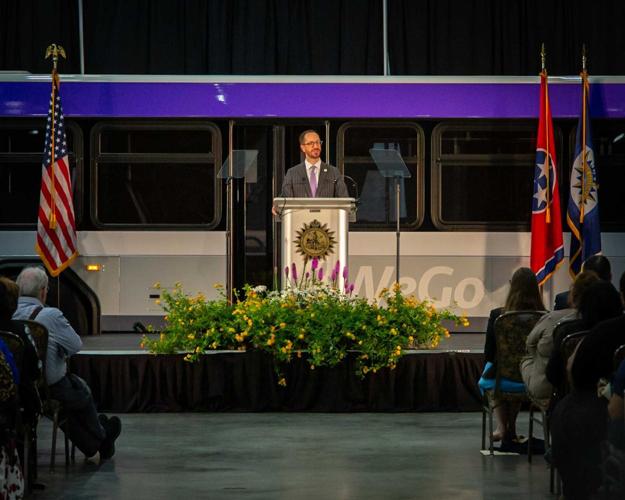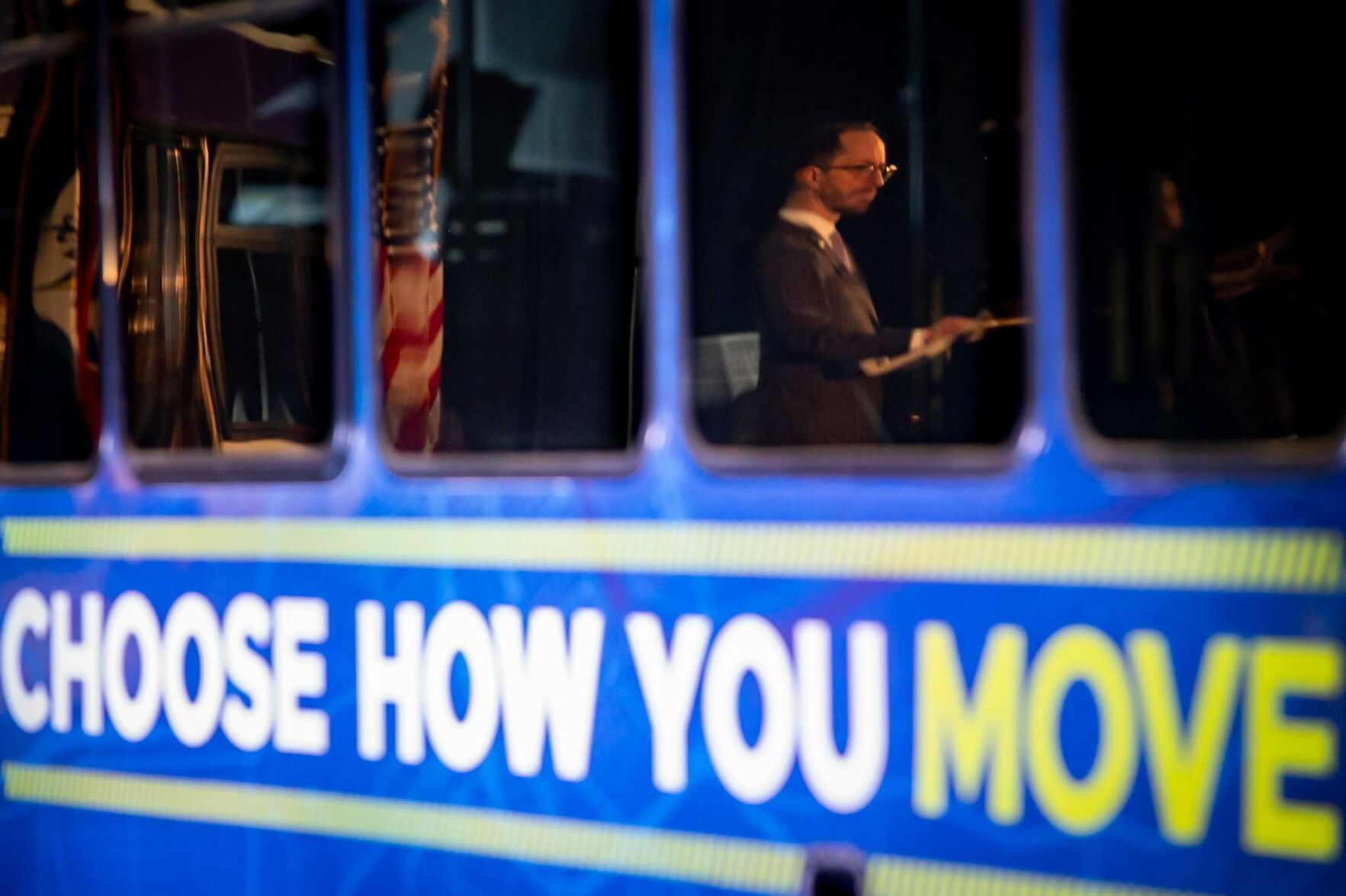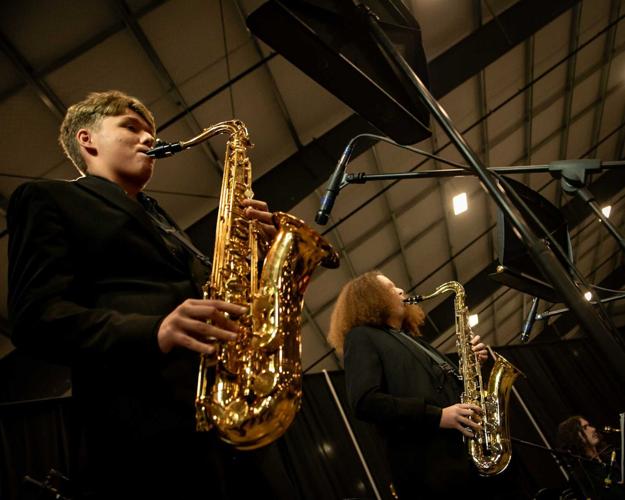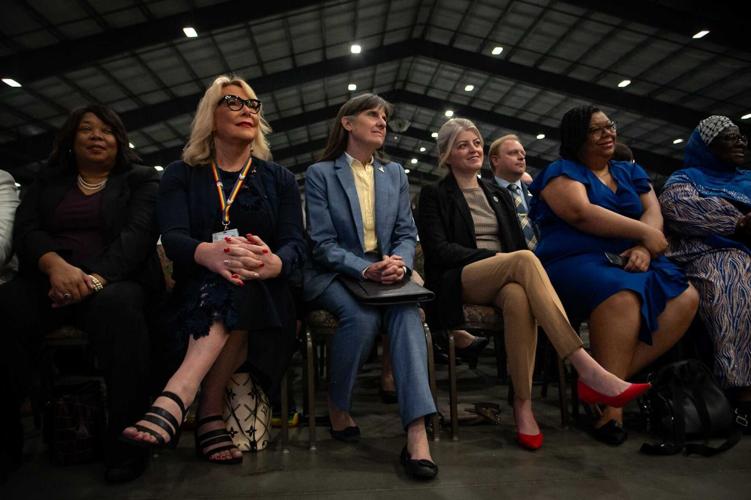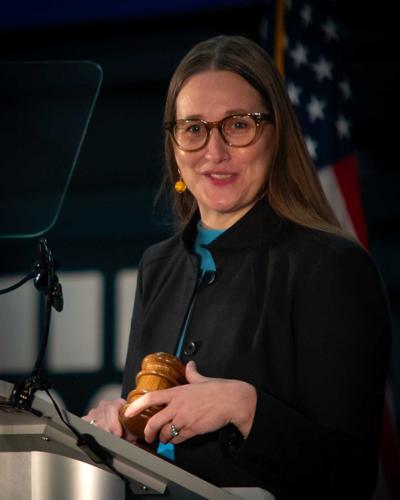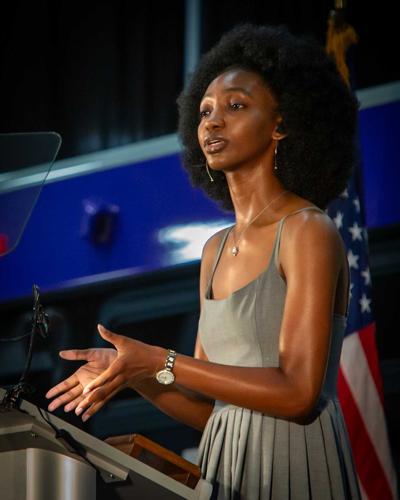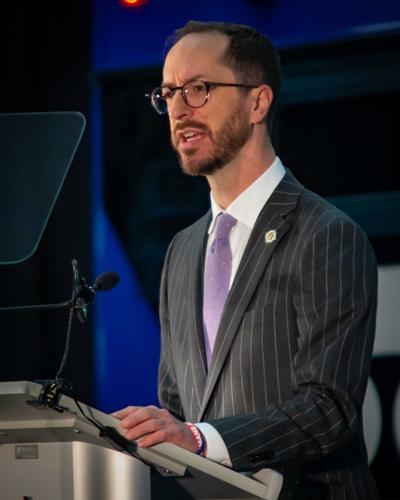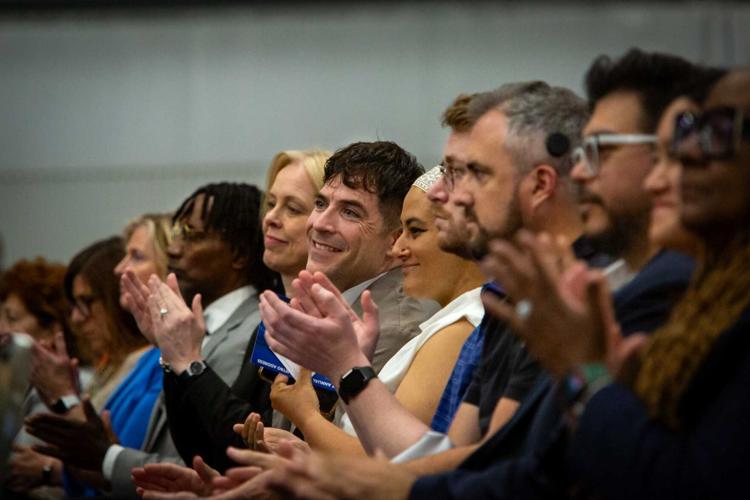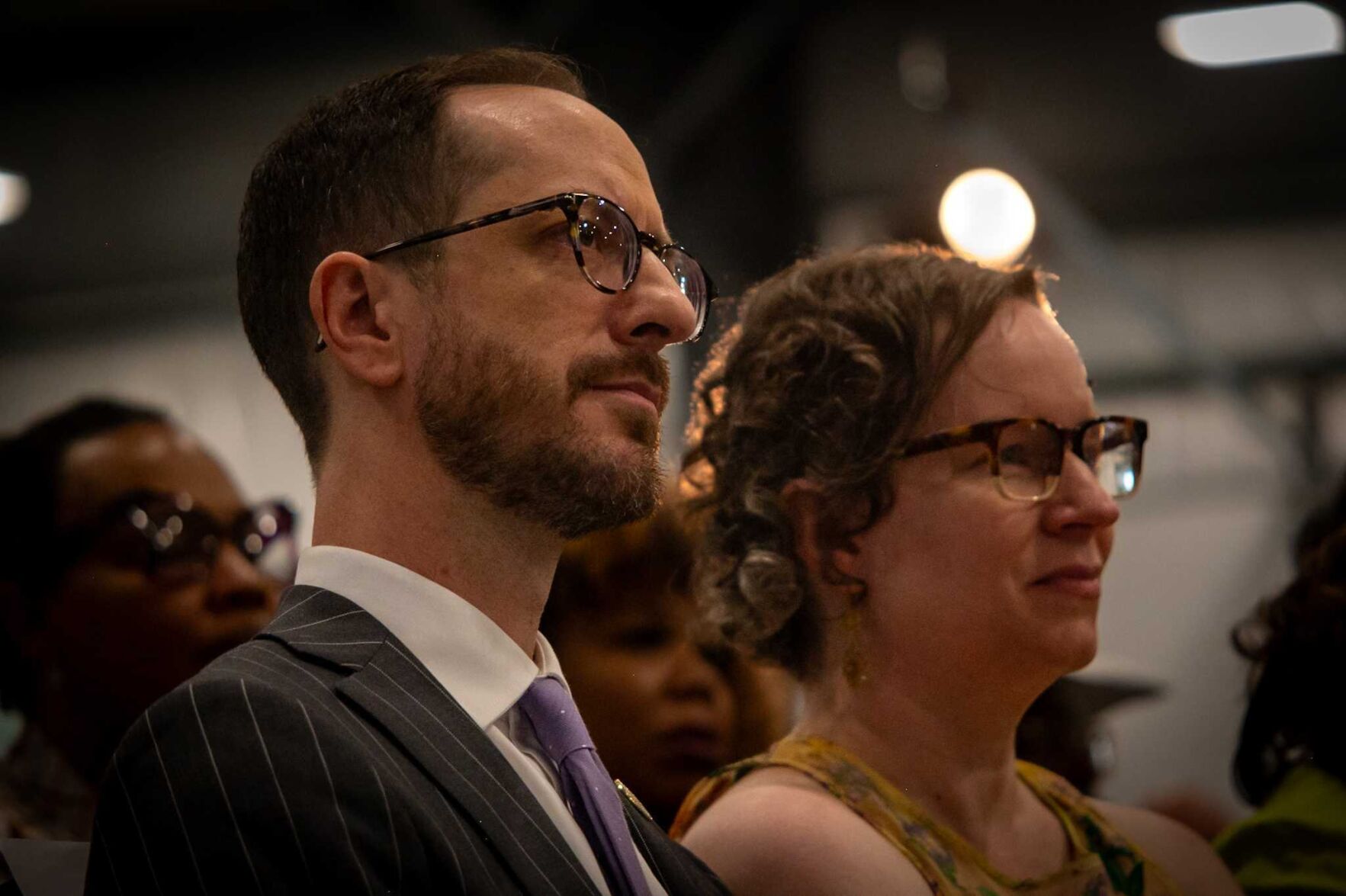At the beginning and the end of a merciful 23-minute State of Metro address on Tuesday, Mayor Freddie O’Connell talked about transportation in front of two big purple WeGo buses inside The Fairgrounds Nashville. A stage and rows of plastic chairs completed the main expo center's transformation into O'Connell's auditorium, where he spoke to a captive audience of local officials, city employees, prominent civic leaders, media and Metro hangers-on.
The 61st annual address was an obvious opportunity to pitch O’Connell’s top priority: passing a comprehensive overhaul to Nashville’s roads and bus system for $3.1 billion. He took a brief aside to praise the steady hand of chief development officer Bob Mendes regarding the East Bank (the crowd broke out in spontaneous applause at the mere mention of Mendes), particularly affordable housing slated under a Mendes-negotiated deal with Fallon Development. Quick plugs for various programs available to low- and fixed-income residents, like a property tax freeze and free financial consulting, shored up the spiritual solidarity with struggling longtime Nashvillians that helped bring him into office.

Freddie O'Connell delivers the 2024 State of Metro Address
O'Connell said nothing about city-state relations, a topline campaign issue last summer, preferring instead the bread-and-butter bullet points that even conservative Nashvillians expect their government to deliver. Violent crime and homicides are down compared to this time last year, we have enough 911 operators to comply with national standards, the city is building public schools and a college scholarship pipeline, and Nashville has recruits for both its fire and police departments (understaffed for the past few years). With a “yes” vote in November, we can do sidewalks and traffic signals, too, says the mayor.
All the facts came alongside O’Connell’s familiar effort to combine justified nostalgia with honest hope for the future. For at least 10 of the speech’s 23 minutes, O’Connell wove his own Nashville biography into the story of a growing city too often inured to the cultural casualties of an insatiable appetite for growth, wealth and development. O’Connell’s rhetorical signature — a crop of sentimental Old Nashville references pushing it to, or even past, the performative — came through more than once, from a childhood memory of a decommissioned wooden roller coaster at the fairgrounds to an anecdote about his first job at The Great Escape hustling surplus inventory from the then-industrial Gulch to the flea market for $4.25 an hour. It’s an open secret that O’Connell still runs his own Twitter (now X) account over pleas from campaign (now administrative) staff, a sign that he might have taken the reins writing Tuesday's big address, the first from his new pulpit.
A year ago, then-councilmember Freddie O’Connell watched outgoing mayor John Cooper declare victory over four years of social, economic and civic turbulence at an under-construction James Lawson High School during last year’s State of Metro address. O’Connell — the first sitting official to formally challenge Cooper back in spring 2022 — had been running an outsider’s campaign, targeting a mayor’s office he criticized as too quick to bend to tourists and the rich. Enough of the city agreed. O’Connell, a bespectacled wonk who represented downtown for eight years on the Metro Council, won the mayor’s seat in September, ushering in a new class of city leaders.
A Metro Council steered by chamber veterans like Vice Mayor Angie Henderson and At-Large Councilmembers Delishia Porterfield and Zulfat Suara — all former O’Connell colleagues — appears positioned to help the mayor’s office get the city back on the right track, whatever that means, after years of rampant growth. The mayor’s transit plan has been cleared by an audit — one of the few news bits from today’s speech — and will come to Henderson’s council for vetting and voting in the coming weeks.

